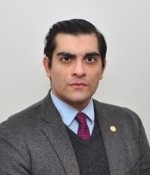How to Stay Vigilant in Turbulent-Unstable Environments
FEATURED PAPER
By Prof. Dr. M.F. HARAKE
ESLI International
Graduate School of Management & Engineering
France
Abstract
Today’s unstable and turbulent business environment requires continuous crisis management. Nowadays, project managers need to deal proactively with potential crisis both effectively and efficiently. This papers outlines crisis management and project management as a necessity for an organization’s continuity and an integral part of contingency planning. It presents crisis project management as a set of approaches, measures and methods used in situations where orthodox project management models are non-applicable nor sufficient. The purpose of this paper is to propose a Proactive Crisis Project Management (PCPM) model that is adopted by organization to either avert or overcome an unwanted crisis and facilitate business continuity and speed up actions.
Key Words: Crisis Management; Crisis Management Approaches; Business Contingency
- Introduction
We live in an unstable world where crisis management has become an important factor to be taken into account for managers and organizations (Loosemore & Hughes, 2001). More than ever, socio-economic high dynamics, political turmoil, etc. are influenced by the impact of globalization and climate change is getting more and more fierce and its results have ever lasting derivatives. Hence, in this environment, a crisis can be considered as more or less permanent (Kouzmin, 2008; Mikušová & Horváthová, 2019). Being aware of such facts managers will need to implement appropriate control measures and prospective scenarios – in order to avert the potential disruption of an organization’s balance and stability (Schoemaker, 1993; Loosemore & Hughes, 2001). Crisis management can be understood as a process that directs an organization’s activity for the purpose of sensing, identifying, getting, and evaluation the warning signals of a potential crisis (Mitroff & Pearson, 1993; Mitroff & Alpaslan, 2003; Paraskevas, 2006; Sahin et al., 2015).
Managers in general and project managers in particular need to strive for a proactive project approach in order to create their entities from a future crisis (Kouzmin, 2008). This is usually done by a thorough analysis of potential crisis and knowledge sharing which leads to subsequent organizational learning and lessons deductions (Robert & Lajtha, 2002; King, 2002; Wagner, 2005). Hence, project managers have to deal with many changes and ensure an efficient course of problem handling – in the sense of dealing with the crisis with the lowest possible losses (Paraskevas, 2006; Pollard & Hotho, 2006). We understand, that an organization’s preparedness for a crisis is becoming both an integral and a strategic management issue (Loosemore & Hughes, 2001).
The purpose of this paper is to provide an outline of both the theoretical and empirical representations / features as well as approaches and models of project crisis management. The existing literature will allow an interpretation of existing knowledge will linking several conceptual notions (Knopf, 2006; Saunders, Lewis & Thornhill, 2012; Vašíčková, 2020). Second, based on the analysis of the literature a new a Proactive Crisis Project Management (PCPM) model will be proposed and detailed with the aim of helping organizations to either avert (contingency) or overcome an unwanted crisis and facilitate business continuity.
More…
To read entire paper, click here
How to cite this paper: Harake, M. F. (2023). Proactive Crisis Project Management: How to Stay Vigilant in Turbulent-Unstable Environments; PM World Journal, Vol. XII, Issue XI, November. Available online at https://pmworldlibrary.net/wp-content/uploads/2023/11/pmwj135-Nov2023-Harake-Proactive-Crisis-Project-Management.pdf
About the Author

Prof. Dr. M. F. HARAKE
Poitiers, France
![]()
Prof. Dr. M. F. HARAKE is a management Professor based in France. He is currently the Director of International Academic Affairs of GIP CEI (a French Higher Education and Research Institution). He is also the Doctorate in Business Administration (DBA) program manager of ESLI International – Graduate School of Management & Engineering (Paris – France) and the scientific director of the MBA DELIVERWEB at ALTERNIS Business School (Bordeaux – France). He previously served as a visiting professor at ESCE International Business School (Paris – France), Paris School of Business (Paris – France), Ascencia Business School (Paris – France), ESPRIT Business School (Tunis – Tunisia), GBSB Global Business School (Barcelona – Spain), etc.
Dr. M.F. HARAKE is a research fellow and former board member of the CEREGE Research Laboratory (University of Poitiers – France), and a visiting research fellow at CABMR Research Center (Paris – France). He is also an Honorary Academic Advisor and Research Scholar at the Project Management World Library (Austin / Texas – USA). He previously served as the Director of the CREFEGE Research Center (Paris – France). His research interests include Post-Conflict Public Management, Crisis and Urgent Operations Management, Humanitarian Logistics, and Project Management in Unstable Environments.
He can be contacted at mharake@gip-cei.com









